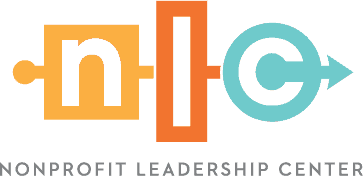Calling a prospective funder shouldn’t just be another phone call to quickly check off your to-do list. At the point of actually picking up the phone, you should be confident the funder is open to your communication (Call Me… Maybe: Determining If You Should Call a Foundation Prospect) and have spent time researching and preparing to make the call (Wait, Don’t Just Pick Up the Phone). Now (and hopefully only now) is the time to actually make the call.
Remember – this is not just any old call. This call could be the beginning or the beginning of the end of a great relationship with a funder for your organization.
Here are tips to make the most of the call.
Be Ready to Talk Now or Later
When you make the initial phone call, you may or may not get through. Be ready for either scenario. First, if you get through to the funder and they say, “Let’s talk now” be ready to go. This does not happen often, but you have to be ready for it every time. Conversely, if you get voice mail or talk to a gatekeeper, be ready to explain why you are calling and make an appointment to connect at a later time.
Location, Location, Location
One wonderful benefit of our modern, connected world is our ability to conduct business from anywhere – coffee shops, sporting events, and conferences. This however is not one of those times. Find a quiet, private place and make sure those around you know that you are not to be interrupted for the duration of the call.
Be Prompt and Respectful of Their Time
Place the call on time and be respectful of the time allowed for the call. If you asked the funder for 20 minutes, stick to that. When the allotted time has passed, you can ask if they are able to keep going, but be prepared for them to say “no” and conclude the call.
Smile!
This might sound silly for a phone call, but it really matters. If you smile while you are talking, it will show in your voice. Practice this on a family member if you are skeptical. The smile in your voice projects a positive attitude and shows your enthusiasm.
Be Enthusiastic
Avoid the trap of being “all business” and not letting your passion come through during the conversation. Make an effort to find the inspiration that you need. Consider a photo of the ultimate beneficiary of the mission – that might be an animal that will be rescued or a child that will be educated.
Manners Matter
You’re building a relationship and first impressions matter. Remember the little things:
• say please and thank you,
• don’t interrupt,
• listen carefully to their answers,
• speak in a clear voice.
Take Good Notes
This conversation is where you can ask for answers and clarification to the questions left unanswered by your research. As you ask your questions, take good notes. Make note of any questions the funder has of you and be sure to record any promises you make or any information you need to provide following the conversation. If you are asked a question you can’t answer, don’t panic and just be honest. Explain why you don’t have that information and offer to find out and follow up as soon as you can.
Ask for Clarity
If you are asked a question you don’t understand, speak up and ask for clarification. The nonprofit sector is filled with jargon and the funder might use terms you haven’t heard before, ask for a definition. Sometimes we are afraid to admit we don’t understand something for fear of making a bad impression. It’s much better to understand than to answer incorrectly on the application when the funder feels they told you what they wanted.
Finish Strong
As you conclude the conversation, review anything you promised to provide and confirm your next steps. Hopefully, you have determined that they will consider your grant application so confirm the deadline. If you determine that a grant application is not appropriate, restate any follow-up action that is appropriate. No matter the outcome of the call, thank them for taking the time to talk to you.
Follow Up
A thank you/nice to meet you note is always appropriate to send after a call. If the funder requested information be sure to follow up and provide it within the agreed upon timeline. If someone else has the information, contact them immediately and confirm that the deadline is appropriate.
The funding community is smaller and more connected that most people think. So while it’s true that if you know one funder, you know one funder – they also talk and a good impression on one can translate to introductions and a good reputation among many funders. Taking the time to do your research about the funder’s process; researching what you can on your own while preparing; and making the most of your time while on the call can make a big difference not only on this particular opportunity but perhaps even more opportunities in the future.

